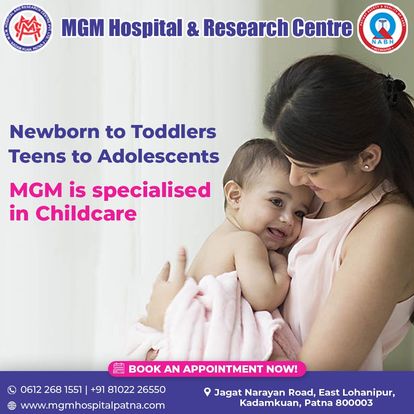Why prenatal and postnatal care is important during birth of a child ?
2023-06-07 - Admin | Blog

Prenatal and postnatal care are crucial for the health and well-being of both the mother and the baby during the birth process. Here's why they are important:
Prenatal care:
a. Monitoring maternal health: Prenatal care involves regular check-ups with healthcare providers to monitor the mother's health throughout pregnancy. This includes tracking blood pressure, weight, and overall well-being. It helps identify and address any health issues that may arise during pregnancy.
b. Ensuring fetal development: Prenatal visits include various tests, ultrasounds, and screenings to monitor the growth and development of the fetus. This allows healthcare providers to identify any potential complications or abnormalities early on and take appropriate actions.
c. Managing maternal health conditions: If a pregnant woman has pre-existing medical conditions such as diabetes, hypertension, or thyroid disorders, prenatal care helps manage these conditions and minimize potential risks to both the mother and the baby.
d. Providing education and support: Prenatal care offers an opportunity for healthcare providers to educate expectant mothers about healthy habits, nutrition, exercise, and childbirth preparation. It also provides emotional support and addresses any concerns or questions the mother may have.
Postnatal care:
a. Monitoring maternal recovery: After childbirth, postnatal care focuses on monitoring the mother's physical and emotional well-being as she recovers from the delivery process. It includes checking for any postpartum complications, managing pain, and providing guidance on self-care.
b. Infant care and feeding support: Postnatal care involves guidance and support for breastfeeding or formula feeding, infant nutrition, and general care for the newborn. Healthcare providers assist with breastfeeding challenges, newborn weight gain, and newborn care techniques.
c. Addressing postpartum mental health: Postnatal care also pays attention to the mother's mental health, as postpartum depression and anxiety can occur. Healthcare providers screen for and provide support for any emotional or psychological challenges the mother may face.
d. Contraception and family planning: Postnatal care includes discussions on contraception methods and family planning for couples who wish to space their pregnancies or delay future pregnancies.
By receiving proper prenatal and postnatal care, mothers can optimize their health and minimize risks during pregnancy and childbirth. Additionally, it promotes the healthy development and well-being of the baby, ensuring a smooth transition into parenthood for both parents.
